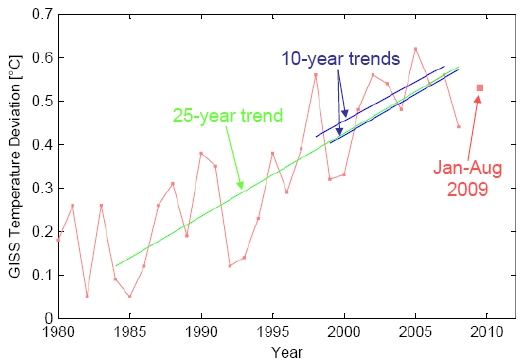Dear Mr. Levitt,
The problem of global warming is so big that solving it will require creative thinking from many disciplines. Economists have much to contribute to this effort, particularly with regard to the question of how various means of putting a price on carbon emissions may alter human behavior. Some of the lines of thinking in your first book, Freakonomics, could well have had a bearing on this issue, if brought to bear on the carbon emissions problem. I have very much enjoyed and benefited from the growing collaborations between Geosciences and the Economics department here at the University of Chicago, and had hoped someday to have the pleasure of making your acquaintance. It is more in disappointment than anger that I am writing to you now.
I am addressing this to you rather than your journalist-coauthor because one has become all too accustomed to tendentious screeds from media personalities (think Glenn Beck) with a reckless disregard for the truth. However, if it has come to pass that we can’t expect the William B. Ogden Distinguished Service Professor (and Clark Medalist to boot) at a top-rated department of a respected university to think clearly and honestly with numbers, we are indeed in a sad way.
By now there have been many detailed dissections of everything that is wrong with the treatment of climate in Superfreakonomics , but what has been lost amidst all that extensive discussion is how really simple it would have been to get this stuff right. The problem wasn’t necessarily that you talked to the wrong experts or talked to too few of them. The problem was that you failed to do the most elementary thinking needed to see if what they were saying (or what you thought they were saying) in fact made any sense. If you were stupid, it wouldn’t be so bad to have messed up such elementary reasoning, but I don’t by any means think you are stupid. That makes the failure to do the thinking all the more disappointing. I will take Nathan Myhrvold’s claim about solar cells, which you quoted prominently in your book, as an example.
